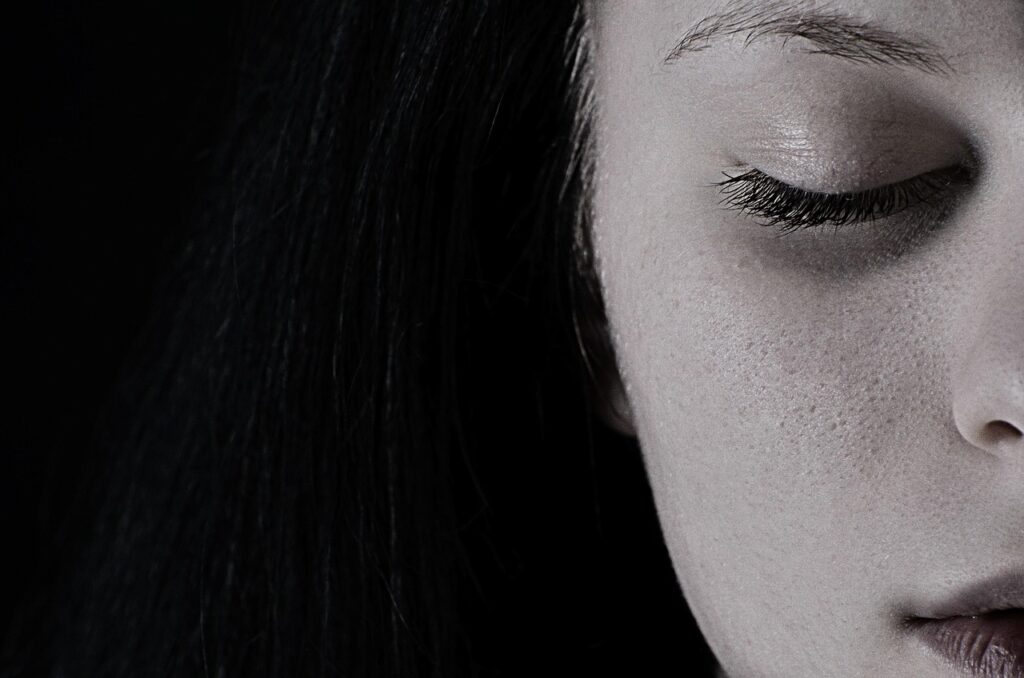Major depressive disorder takes on different forms, each with its own unique set of challenges. One such subtype is atypical depression, a condition that, despite its name, is both common and highly treatable.
If you’re navigating the world of depressive disorders or seeking clarity about your own emotional well-being, this blog post will provide valuable insights. We’ll explore the symptoms of atypical depression, its causes and risk factors, diagnostic criteria, treatment options, and actionable strategies to improve your mental health.
For readers ready to take the next step, licensed mental health professionals, like Dr. Matthew G. Mandelbaum, are equipped to guide you on your path toward healing.
Understanding Atypical Depression
What Is Atypical Depression?
Atypical depression is a subtype of major depressive disorder (MDD) characterized by atypical symptoms, such as mood reactivity (improved mood in response to positive events), increased appetite, significant weight gain, and hypersomnia (excessive sleepiness). While it can be similar to bipolar disorder, atypical depression is different.
A positive life event can temporarily improve the mood of individuals with atypical depression, which is an essential criterion for diagnosis as outlined in the DSM-5-TR.
Ready to Start Therapy?
Your healing journey can begin today. Fill out the form below to connect with a therapist who truly listens and understands.
Unlike melancholic depression, which tends to manifest in a persistently low mood, atypical depression allows individuals to experience moments of relief or happiness when good things happen. However, these moments are fleeting, and the underlying condition persists, impacting daily life and functioning.
Misconceptions About Atypical Depression
Some individuals mistakenly perceive atypical depression as “less serious” than its melancholic counterpart. This is a harmful myth. Atypical depression is a diagnosable clinical condition rooted in biological, psychological, and social factors. Establishing a definitive diagnosis for atypical depression is crucial, as it relies on a thorough clinical evaluation rather than straightforward lab tests or imaging techniques.
Other misconceptions include:
- Improved mood doesn’t mean “faking it”: Experiencing temporary happiness in response to positive events doesn’t diminish the condition’s severity.
- Weight gain and increased appetite aren’t about willpower: These symptoms are part of the condition, not personal failings.
- It’s not a character flaw: Atypical depression, like any other mental illness, needs professional treatment for patients diagnosed with the condition.
Symptoms of Atypical Depression
Individuals with atypical depression exhibit a distinct set of symptoms, including but not limited to the following:
- Mood Reactivity: Brief emotional lift in response to a positive event, followed by emotional decline.
- Weight Gain and Increased Appetite: Unlike melancholic depression, where patients may lose their appetite, atypical depression can lead to overeating.
- Hypersomnia: Sleeping too much or feeling the need to nap often.
- Leaden Paralysis: A sensation of heaviness in the arms and legs that can make movement feel physically difficult.
- Interpersonal Rejection Sensitivity: Heightened sensitivity to criticism or rejection, often leading to feelings of inadequacy.
Mood disturbance in atypical depression is characterized by these unique symptoms, significantly affecting social functioning and overall quality of life.
Additionally, patients may struggle with low self-esteem and prolonged episodes of emotional distress that interfere with work, relationships, and daily life, leading to significant social or occupational impairment.
Why Diagnosing Atypical Depression Is Crucial
A delayed diagnosis can lead to misunderstanding and mistreatment. Because the symptoms of atypical depression differ from those of traditional depression, it’s essential to consult a licensed mental health professional for an accurate diagnosis and treatment plan. A physical exam may be conducted to rule out other conditions.
While consulting a licensed mental health professional is crucial, working with a primary care physician can also be part of the process. However, patients may need to compensate for any knowledge gaps by researching their condition and actively engaging in their treatment.
Causes and Risk Factors
Biological and Psychological Factors
Atypical depression arises from a combination of factors, including genetics, hormonal imbalances, and disruptions in brain chemicals like serotonin and dopamine. These neurochemical changes contribute to the emotional and physical symptoms experienced by individuals. Atypical depression often has an earlier age of onset, typically beginning during the teenage years.
Research suggests that these neurochemical changes are not the primary cause of atypical depression, but they do play a significant role in its symptomatology and chronic nature.
Environmental Influences
Environmental stressors, such as trauma, prolonged stress, or social isolation, can trigger or exacerbate symptoms of atypical depression. This condition often manifests in individuals with a family history of mood disorders or chronic mental health challenges.
The overlapping symptoms of atypical depression and chronic fatigue syndrome can lead to misdiagnosis, as fatigue is a significant symptom in both conditions. Careful screening is essential to ensure proper identification and treatment of underlying atypical depression.
Evidence suggests that environmental stressors have a significant impact on the hormonal and biological responses in individuals with atypical depression, highlighting the importance of addressing these external factors in treatment.
Risk Factors
The likelihood of developing atypical depression increases with the presence of certain risk factors, including:
- Early exposure to trauma or adverse childhood experiences.
- A family history of mental health conditions, especially mood disorders.
- Chronic stress or unresolved emotional conflicts.
- Social isolation or lack of supportive relationships.
The high prevalence of atypical depression underscores the importance of recognizing these risk factors early.
Studies find that atypical depression is significantly more prevalent among female patients, highlighting a gender disparity that may indicate unique risk factors or symptomatology associated with this disorder.
Diagnostic Criteria and Process
A diagnosis of atypical depression adheres to the standards set forth in the Diagnostic and Statistical Manual of Mental Disorders (DSM-5). Specific criteria include the presence of atypical features, such as mood reactivity and at least two of the following symptoms: hypersomnia, weight gain/increased appetite, leaden paralysis, and interpersonal sensitivity.
Atypical depression is diagnosed through a clinical evaluation that considers family history, symptoms, and may use depression tests alongside DSM-5-TR criteria for accurate diagnosis. A licensed mental health professional may conduct interviews, psychological assessments, and physical exams to rule out other conditions, ensuring comprehensive and accurate evaluation of depression with atypical features.

Effective Treatment Options for Atypical Depression
Atypical depression is a highly treatable condition. Treatment involves a combination of evidence-based approaches, including therapy, medication, and lifestyle modifications. Clinical studies have shown that monoamine oxidase inhibitors (MAOIs) have superior efficacy over other medications, particularly selective serotonin reuptake inhibitors (SSRIs), for this specific subtype of depression.
It is crucial to recognize the symptoms of atypical depression to ensure that individuals receive appropriate treatment, which includes tailored treatment plans that address the unique aspects of their condition.
1. Cognitive-Behavioral Therapy (CBT)
CBT equips individuals with tools to challenge negative thought patterns, manage emotional responses, and develop healthier coping strategies. Talk therapy, including CBT, plays a vital role in treating atypical depression by helping patients develop coping skills to manage their symptoms and improve their mental health.
It is particularly effective for managing mood reactivity and rejection sensitivity. CBT is a proven method to treat atypical depression, offering a structured approach to address the specific symptoms associated with this condition.
2. Dialectical Behavior Therapy (DBT)
DBT focuses on improving distress tolerance and emotional regulation. This therapy empowers individuals to manage intense feelings and reduce impulsive behaviors.
3. Trauma-Informed Care
Because early trauma is a common risk factor, addressing underlying emotional wounds through trauma-informed therapy is an important component of care.
4. Medication
Medications such as SSRIs, SNRIs, and MAOIs can help restore balance to brain chemicals involved in mood regulation. Monoamine oxidase inhibitors (MAOIs) are particularly effective for treating atypical depression. It’s essential to consult a psychiatrist or licensed medical professional to determine the most appropriate medication, as understanding medication response is crucial for tailoring treatment plans.
5. Mindfulness and Stress Management
Stress management practices like deep breathing, meditation, yoga, and relaxation techniques can complement traditional treatments by promoting emotional well-being and reducing overall distress.
6. Lifestyle Changes
- Exercise: Regular physical activity is proven to alleviate depressive symptoms by releasing endorphins.
- Nutrition: A well-balanced diet rich in omega-3 fatty acids and vitamins supports brain health.
- Sleep Hygiene: Maintaining a consistent sleep schedule can mitigate hypersomnia and improve energy levels.
7. Telepsychology
With the growing availability of telepsychology, individuals can access therapy from the comfort of their own homes. This flexibility makes treatment more accessible to those with busy schedules or mobility constraints.
8. Alternative and Complementary Therapies
Alternative and complementary therapies can provide additional relief for individuals with atypical depression. Some popular options include:
- Acupuncture: This ancient Chinese practice involves inserting thin needles into specific points on the body to stimulate healing and relaxation. It can help alleviate symptoms by promoting a sense of calm and reducing stress.
- Yoga: Combining physical postures, breathing techniques, and meditation, yoga promotes relaxation and reduces stress. Regular practice can improve mood and overall well-being.
- Meditation: This mindfulness practice involves focusing the mind on a specific object, thought, or activity to achieve a state of relaxation and inner peace. It can help manage mood disturbances and enhance emotional resilience.
- Mindfulness-Based Stress Reduction (MBSR): This program combines mindfulness techniques with education on stress reduction and relaxation. It has been shown to reduce symptoms of depression and improve quality of life.
- Herbal Supplements: Certain herbs, such as St. John’s Wort, have antidepressant properties and may be used in conjunction with traditional treatments. However, it’s crucial to consult with a licensed mental health professional before starting any new supplements.
While these alternative and complementary therapies can be beneficial, they should not replace traditional treatments for atypical depression. Always consult with a licensed mental health professional to ensure a comprehensive and safe approach to managing your mental health.
Coping Strategies and Building Resilience
Individuals living with atypical depression can take actionable steps toward improving their well-being. These include:
- Developing a Support Network: Surround yourself with understanding friends and family members.
- Practicing Self-Compassion: Avoid self-blame and recognize that depression is not a choice.
- Engaging in Creative Outlets: Try journaling, painting, or other hobbies to channel emotions positively.
- Educating Yourself: Learn about your condition to become an informed advocate for your own treatment.
Atypical depression can lead to occupational impairment, significantly disrupting social interactions and work performance due to interpersonal rejection sensitivity.
Individuals with atypical depression often face challenges such as extreme sensitivity, rumination, and difficulty overcoming embarrassment, which can hinder their daily functioning and overall quality of life.
Living with Atypical Depression
Living with atypical depression can be challenging, but there are ways to manage symptoms and improve quality of life. Here are some tips:
- Keep a Mood Journal: Tracking your moods and symptoms can help you identify patterns and triggers. This can be a valuable tool for you and your mental health professional to develop an effective treatment plan.
- Practice Self-Care: Engage in activities that bring you joy and relaxation, such as exercise, reading, or spending time with loved ones. Self-care is essential for managing depressive symptoms and maintaining emotional well-being.
- Build a Support Network: Surround yourself with people who understand and support you, including friends, family, and mental health professionals. A strong support network can provide emotional comfort and practical assistance.
- Engage in Activities That Bring Joy: Participate in hobbies, creative pursuits, or other activities that give you a sense of purpose and fulfillment. These activities can help lift your mood and provide a positive focus.
- Set Realistic Goals and Expectations: Break down larger goals into smaller, achievable tasks to help manage feelings of overwhelm. Setting realistic expectations can reduce stress and improve your sense of accomplishment.
By incorporating these strategies into your daily life, you can better manage symptoms of atypical depression and improve your overall well-being.
Supporting Someone with Atypical Depression
Supporting a loved one with atypical depression requires understanding, empathy, and patience. Here are some ways to support someone with atypical depression:
- Educate Yourself: Learn about atypical depression, its symptoms, and treatment options to better understand what your loved one is experiencing. Knowledge is a powerful tool in providing effective support.
- Encourage Professional Treatment: Support your loved one in seeking professional help from a licensed mental health professional. Professional treatment is crucial for managing symptoms and improving quality of life.
- Offer Emotional Support and Validation: Listen to your loved one without judgment, and validate their feelings and experiences. Emotional support can make a significant difference in their journey toward recovery.
- Help with Daily Tasks and Responsibilities: Assist with tasks such as grocery shopping, cooking, or cleaning to help reduce stress and workload. Practical assistance can alleviate some of the burdens they may be facing.
- Encourage Self-Care and Relaxation Techniques: Support your loved one in engaging in activities that promote relaxation and stress reduction, such as exercise, meditation, or deep breathing exercises. These practices can enhance their emotional well-being.
By providing emotional support and practical assistance, you can help your loved one manage symptoms of atypical depression and improve their overall quality of life.
The Role of Trauma in Atypical Depression
Unresolved trauma often plays a significant role in atypical depression. With expert therapeutic care, such as that offered by trauma-informed therapists like Dr. Mandelbaum, individuals can untangle the past’s hold on their present emotions.
Research and Future Directions
Research into atypical depression is ongoing, and new advancements are continually being made. Some promising areas of research include:
- New Medications and Treatments: Researchers are exploring new medications and treatments that target specific symptoms of atypical depression. These advancements aim to improve the effectiveness and reduce the side effects of current treatments.
- Improved Diagnostic Criteria: Efforts are being made to refine diagnostic criteria for atypical depression to improve accuracy and consistency. Enhanced diagnostic tools can lead to more accurate diagnoses and better-tailored treatment plans.
- Increased Understanding of Underlying Causes: Researchers are working to better understand the underlying causes of atypical depression, including genetic and environmental factors. This knowledge can inform the development of more effective treatments and preventive strategies.
- Development of Alternative Therapies: Alternative therapies, such as mindfulness-based stress reduction and acupuncture, are being studied for their potential benefits in treating atypical depression. These therapies may offer additional options for individuals seeking comprehensive care.
As research continues to advance, we can expect to see improved treatments and a better understanding of atypical depression. This progress holds promise for enhancing the lives of those affected by this condition.

Closing Thoughts: Finding Hope and Moving Forward
Atypical depression may feel overwhelming, but it is important to remember that it is a treatable condition. With the right combination of therapy, medication, and support, individuals can build meaningful lives and sustain emotional well-being.
If you’re ready to take the first step toward healing, reach out to me, Dr. Matthew G. Mandelbaum, at Groundbreaker Therapy. Together, we can build a treatment plan tailored to your unique needs and help you regain your sense of self.
Learn More About Atypical Depression
If you’re looking to deepen your understanding of atypical depression, explore the following reputable resources:
- National Institute of Mental Health (NIMH): Depression Overview: This comprehensive resource covers the basics of depression, including symptoms, diagnosis, and treatment options.
- American Psychological Association (APA): Atypical Depression: Learn more about the nuances of atypical depression and strategies for managing it effectively.
- Mayo Clinic: Depression Overview: Offering detailed information about depression and its subtypes, including atypical depression, the Mayo Clinic provides trusted, medically-reviewed insights.
- Psychology Today: Understanding Atypical Depression: This resource provides practical articles and expert insights into living with and managing atypical depression.
- HelpGuide.org provides an accessible and detailed guides on recognizing and coping with atypical depression, with practical advice and self-help strategies.
- WebMD: Atypical Depression: WebMD delivers clear and concise medical information about atypical depression, covering symptoms, causes, and potential treatments.
These links offer valuable information to help you better understand the condition, whether for yourself or a loved one in need of support. Always consult with a qualified mental health professional for personalized guidance.


